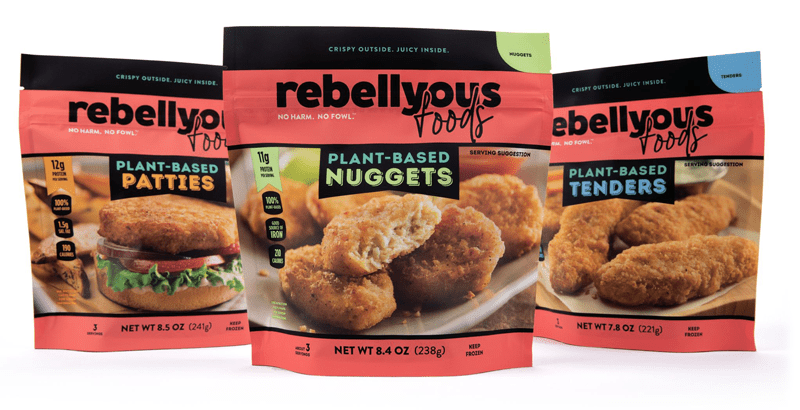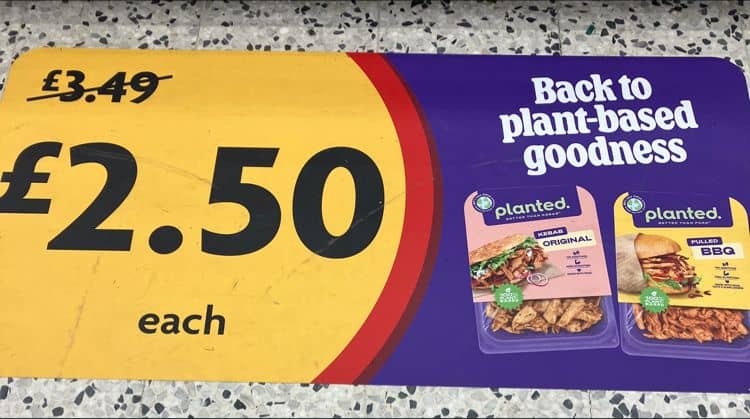A recent analysis conducted by the Physicians Committee for Responsible Medicine, published in JAMA Network Open, sheds light on the economic benefits of adopting a low-fat vegan diet.
Vegan diets have been central to poorer communities and indigenous peoples around the world for centuries; items such as tofu, seitan, TVP, beans, and tempeh, are highly affordable and more so than animal proteins. Furthermore, a recent Gallup Consumption Habits poll highlighted that the largest population of Americans opting for plant-based diets are those in low-income families.
Contrary to the widely-held notion that vegan diets are more expensive, and the subsequently perceived obstacle of a price barrier cited by a majority of non-vegans, the new PCRM paper found that those living a plant-based lifestyle can save 16% on grocery bills, averaging $500 per year compared to those following diets that include meat, dairy, and other animal products. Notably, the savings accounted for increased spending on meat and dairy alternatives.

The study, led by Dr. Hana Kahleova, director of clinical research at the PCRM, examined the dietary habits of participants who were randomly assigned to either a vegan group or a control group. The vegan group was encouraged to adhere to a low-fat vegan diet, while the control group made no dietary changes.
The vegan group experienced a 16% reduction in total food costs, equivalent to approximately $1.51 per day. This decrease was primarily due to reduced spending on meat (-$1.77 per day) and dairy (-$0.74 per day). The increased expenditures on vegetables (+$1.03 per day), fruits (+$0.40 per day), legumes (+$0.30 per day), whole grains (+$0.30 per day), and meat and dairy alternatives were outweighed by the savings on meat and dairy products leading to overall savings equating to nearly $500 per year.
“We knew that a vegan diet significantly reduces your risk of conditions like heart disease, diabetes, and obesity—and now we have proof that opting for beans instead of beef will also lead to significant savings on your grocery bill,” says Kahleova.
Challenging the price barrier

Granted, it is obviously more affordable to live on a diet of whole foods, vegetables and grains, while the purchasing of many meat and dairy alternatives is still more expensive in many cases since their producers are emerging in the space and the items are often not mass-produced. However, here are just a few examples of alternative products at price parity or lower than their meat and dairy counterparts.
In the US:
- Rebellyous’ vegan nuggets are at price parity with chicken.
- Hooray Foods’ vegan bacon is quickly approaching price parity with traditional pork bacon.
- In foodservice: Taco Bell’s Vegan Crunchwrap is sold at parity to its original, while several emerging vegan fast food chains are offering burgers at the same price or less than conventional fast food, such as Next Level, Mr Charlie’s, and Hart House.
- JUST Egg’s liquid egg last year achieved price parity with chicken eggs.
In the UK:
- Vivera’s vegan salmon fillets cost less than conventional salmon.
- Vegan fast food chain Ready Burger challenges McDonald’s and co with the same price points.
- PETA here lists several vegan products that are cheaper than their counterparts.
- Juicy Marbles sells its plant-based filet mignon steaks at par or less than conventional filet mignon (also available in the US and EU).
- Planted is offering its products at a lower price point than its meat counterparts.

In Europe:
- In France, alt-meat approaches and often reaches price parity, with Beyond Meat dropping 40% in price, and Nestlé’s plant-based Gardein Gourmet brand is now underpricing leading French meat producer Charal.
- La Vie plant-based bacon can be found for as little as 2€ — see the brand’s post about lowering costs for shoppers here.
- In the Netherlands, supermarket researcher Questionmark found inflation and high raw material prices have caused animal meat prices to skyrocket in comparison with plant-based alt meats.
- Spain’s Hello Plant Foods launched a vegan foie gras alternative called Hello Fuah! at stores across the country selling at 50% cheaper than conventional foie gras.

In 2019, a study conducted by Dalhousie University and the University of Guelph in Canada featured similar insights, revealing that a family of four can save an average of 6.8 percent on their annual grocery bill by preparing food at home and adopting a plant-based diet.
Plant-based will be cheaper and better-tasting
Now that plant-based products are entering the mainstream and the industry is undergoing consolidation, prices will drop even further in coming years; as Vion Food Group stated to vegconomist: “In five years’ time, plant-based products will be cheaper and even better tasting than real meat.”
In the midst of our climate crisis and with 80 to 90 billion animals murdered for food each year, along them their habitats — and thus our own habitat — we are at a crucial point in time where awareness must be raised amongst mainstream consumers. Studies such as that of the PCRM are an essential part of this awareness
It’s time to challenge the narrative and help consumers realize the benefits across the board of a plant-based diet, for their wallets, the planet, their health, and the animals.




